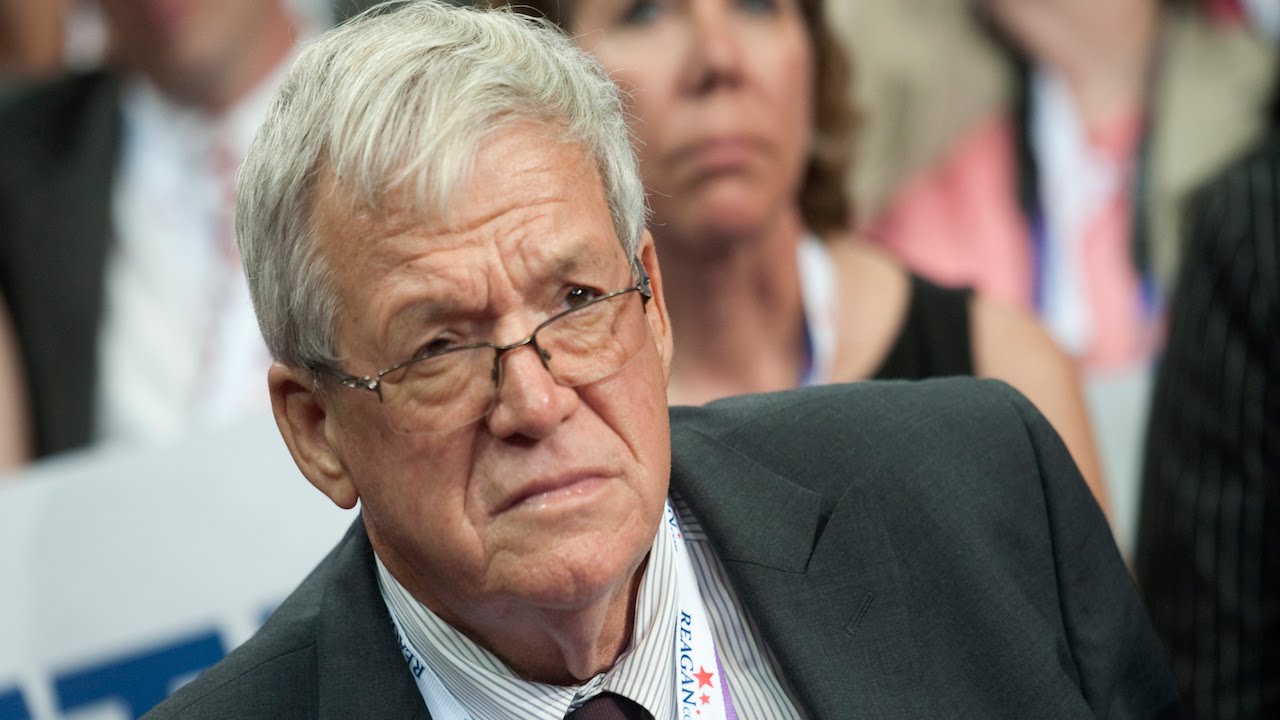Table Of Content

The chairman of the Appropriations Committee was nominated by the party conference but withdrew after a magazine story accused him of marital infidelity. Two colleagues had spoken up to say they would join Greene in such a vote, giving her enough to defeat the speaker if all the chamber's Democrats voted to do the same. That's what the Democrats did when a motion to vacate the chair ousted the last Republican speaker, Kevin McCarthy, last fall. Just such a "motion to vacate the chair" was filed against Johnson in March by Rep. Marjorie Taylor Greene, R-Ga. But Greene has yet to make the motion "privileged," which under the rules would necessitate a vote within two days. Representative Hakeem Jeffries of New York was selected as the Democratic minority leader.
Biden, Mexican President Andrés Manuel López Obrador discuss migration in latest call
Wielded effectively, the position of Speaker of the House is one of the most powerful in Washington. Depending on the partisan makeup of Congress, they can make or break a US president's agenda, stymie opposition, and spearhead their party's biggest legislative initiatives. At a practical level, the Speaker sets the House's legislative agenda, controls committee assignments, sets the vote and work calendar, and is responsible for keeping their party members unified behind major initiatives. The House has been in a state of uncertainty and chaos since Oct. 3, when rebels forced a vote to oust Mr. McCarthy as speaker. Eight Republicans backed that move along with Democrats, who remained united behind their own leader, Representative Hakeem Jeffries of New York. Republicans had cast aside two previous winners of their closed-door nominating process — Representative Steve Scalise of Louisiana and Representative Jim Jordan of Ohio — before settling on Mr. Emmer.
California Assembly
Republicans have now spurned all three of their top leaders over the past few weeks. The chamber has been frozen for the better part of a month as Republicans feud over who should be in charge, even as wars rage overseas and a government shutdown approaches. Pressed by reporters on Tuesday night about his efforts to overturn the election, Mr. Johnson smiled and shook his head, saying, “next question,” as Republicans beside him booed.
House Republicans spar over Speaker decision as McCarthy fights to secure votes
That means with Republicans winning a narrow majority in the House, McCarthy can only afford to lose a small handful of Republican votes. The speaker’s gavel is usually a promotion.In modern speaker elections, the person who wins the gavel is usually already in their party’s leadership ranks. This is one reason California Republican Kevin McCarthy, the current GOP majority leader, was the clear favorite to replace Boehner. The House elects a new speaker by roll call vote when it first convenes after a general election for its two-year term, or when a speaker dies, resigns or is removed from the position intra-term. In modern speaker elections, the person who wins the gavel is usually already in their party’s leadership ranks.
Ambition keeps him loyal to Donald Trump. But what does Kevin McCarthy stand for?
What If Mike Johnson Is Actually Good at This? - The Atlantic
What If Mike Johnson Is Actually Good at This?.
Posted: Mon, 22 Apr 2024 17:20:00 GMT [source]
At the time, one of the most important sources of the speaker's power was his position as Chairman of the Committee on Rules, which, after the reorganization of the committee system in 1880, became one of the most powerful standing committees of the House. Furthermore, several speakers became leading figures in their political parties; examples include Democrats Samuel J. Randall, John Griffin Carlisle, and Charles F. Crisp, and Republicans James G. Blaine, Thomas Brackett Reed, and Joseph Gurney Cannon. The coming speaker election will be just the fifth time since 1913 (the earliest year in the Congressional Research Service report) that a new speaker has been elected mid-term. And it is only the second time in those 102 years that the speaker resigned before their term is finished. You just have to be nominated, no House seat required.All candidates for speaker must be nominated by members of the House, but they don’t need to be elected lawmakers of the House.
Albert's successor, Democrat Tip O'Neill, was a prominent speaker because of his public opposition to the policies of President Ronald Reagan. O'Neill is the longest continuously serving speaker, from 1977 through 1987. Republicans made O'Neill the target of their election campaigns in 1980 and 1982 but Democrats managed to retain their majorities in both years. To add an implicit requirement, the Speaker is in the line of Presidential succession.
The existing leader of the majority party is usually presumed to be the person to assume the speakership. In the weeks after an election, the Republican conference and the Democratic caucus hold an informal vote among their members to decide who they want to nominate to lead their party in January. Rep. Kevin McCarthy won the majority of the Republican vote in a closed-door November meeting. Weeks later, Democrats unanimously chose Rep. Hakeem Jeffries to become their leader as the party transitions into the minority. In the weeks after an election, the Republican conference and the Democratic caucus hold an informal vote among their members to decide whom they want to nominate to lead their party in January. McCarthy won the majority of the Republican vote in a closed-door November meeting.
That speaker was Joseph G. Cannon of Illinois, notorious as the autocratic "Czar Cannon" during three two-year tours as speaker that ended with his party's historic defeat in 1910. The well-respected No. 2 Republican, Eric Cantor of Virginia, had lost his primary in 2014. The No. 3, McCarthy, soon ran aground over remarks in a TV interview and lacked the votes to be speaker. The party settled on Ways and Means Chairman Paul Ryan of Wisconsin, who had not sought the gavel but agreed to take it. The No. 2 Republican at the time did not have the votes, and the No. 3 declined to run.

Democrats renominated Minority Leader Hakeem Jeffries
Representative Jim Jordan of Ohio, a founder of the hard-right House Freedom Caucus and someone Mr. Johnson has described as a mentor, was the next member to be elected speaker designate in a secret ballot. He had Mr. Trump and the far right in his corner, but ultimately failed to win over more centrist members of his party who steadfastly refused to support him. The House is currently without a speaker after Kevin McCarthy was removed from the position in a vote on Tuesday, the first time in history a speaker has been removed via a no-confidence vote. Rep. Patrick McHenry, a close ally of McCarthy's, has been named speaker pro tempore, while Reps. Steve Scalise and Jim Jordan have both announced they are running to be the next speaker.
Instead, he moved quickly to bring up a resolution expressing solidarity and support for Israel. His next order of business, he said, would be addressing what he called the country’s “broken border” with Mexico. He made no mention of the impeachment inquiry into President Biden, or of the impending government shutdown that will begin next month if Congress fails to pass legislation to keep the government funded. Mr. Johnson was only able to emerge as his party’s nominee for speaker this week after three other G.O.P. nominees before him were unable to rally enough support. On the eve of the Jan. 6 votes, Mr. Johnson had honed his arguments undermining the election to be more palatable.
From early in its existence, the speaker's primary function had been to keep order and enforce rules. Furthermore, when no candidate received an Electoral College majority in the 1824 presidential election, causing the president to be elected by the House, Speaker Clay threw his support to John Quincy Adams instead of Andrew Jackson, thereby ensuring Adams' victory. Following Clay's retirement in 1825, the power of the speakership once again began to decline, despite speakership elections becoming increasingly bitter. As the Civil War approached, several sectional factions nominated their own candidates, often making it difficult for any candidate to attain a majority.
The year was 1923, the last time the House required multiple days and repeated votes to settle on a new speaker before this week’s continuing stalemate over the candidacy of Representative Kevin McCarthy, Republican of California. Mr. McCarthy still wins re-election in the district with two-thirds of the vote, but the passionate minority of the majority has become his Achilles’ heel, as it has been on the House floor this week. Upon hearing that a speaker had not been elected, shouts of disappointment filled the air.
(5) Elected officers and minority employees nominated as elected officers of the House. The most intense tussle was over local control, with dozens of cities — including L.A. This is a list of elected officials serving the city of Los Angeles, California.

No comments:
Post a Comment